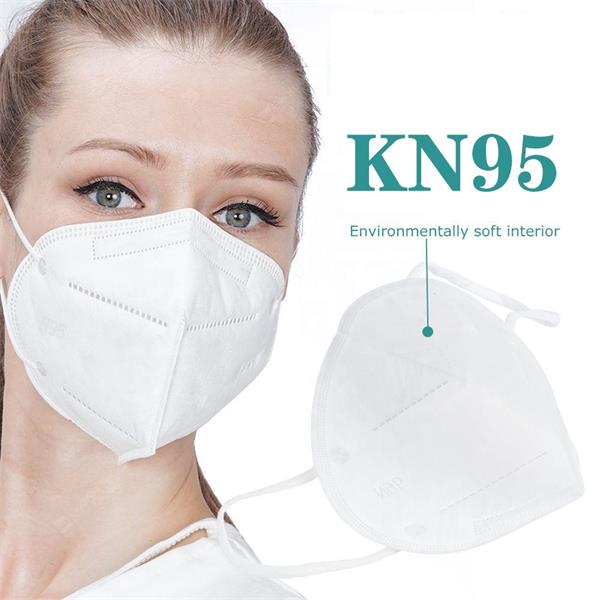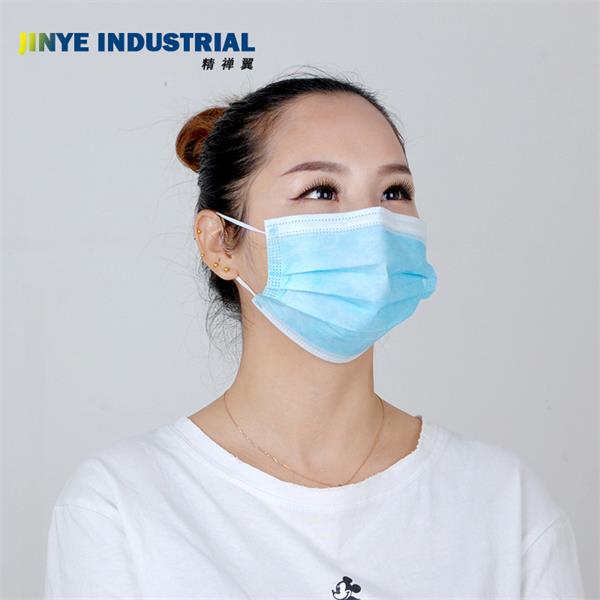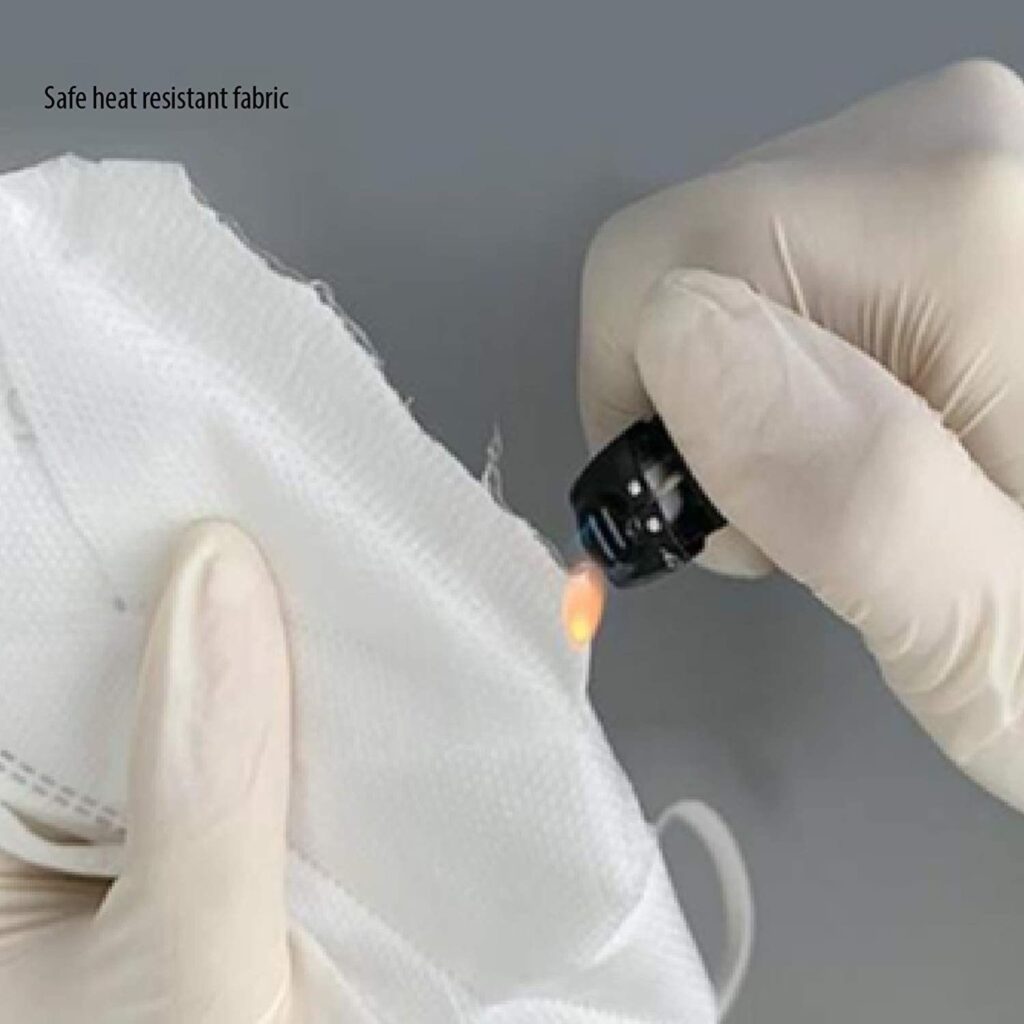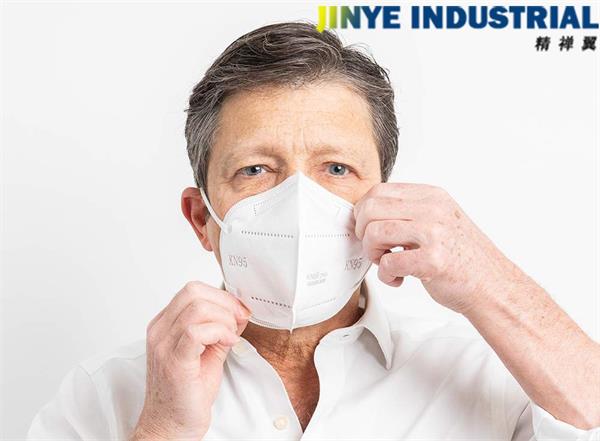
Disposable Face Mask Supplier & Manufacturer
JINYE is a trusted manufacturer and supplier of disposable face masks. Our extensive range includes Civilian, Medical, KN95, N95, FFP2, FFP3, and Children’s Printed Masks. With CE and FDA certifications, our masks meet the highest standards. With years of experience, we’re not just manufacturers – we’re your health and safety partners.
General Hot Selling Products
Masks are an important tool in our efforts to control the spread of infectious diseases, both in our daily lives and in healthcare settings. By wearing a disposable mask, we can help to protect ourselves and those around us, especially those who may be more vulnerable to severe illness or death.

FFP2 face masks are a type of respirator that provides effective protection against particulate matter and airborne diseases. These masks are designed to filter out at least 94% of airborne particles, including dust, pollen, and viruses, making them ideal for use in healthcare settings, industrial settings, and other high-risk environments.
FFP2 face masks are made from a variety of materials, including synthetic fibers, cotton, and other materials. They typically feature multiple layers of material to provide maximum protection, with a soft inner layer that is comfortable to wear for extended periods.
One of the key advantages of FFP2 face masks is their high level of filtration efficiency. They are designed to capture particles that are as small as 0.3 microns, making them highly effective at filtering out airborne pollutants and viruses.
Another advantage of FFP2 face masks is their design, which ensures a secure fit and minimizes the risk of air leakage around the edges of the mask. This is achieved through the use of adjustable straps and a flexible nose bridge that can be molded to the shape of the wearer’s face.

FFP3 face masks are a type of respiratory protective equipment that provides the highest level of protection against airborne particles, including viruses and bacteria. These masks are designed to filter out at least 99% of airborne particles, including dust, smoke, and other pollutants, making them ideal for use in healthcare settings, industrial settings, and other high-risk environments.
FFP3 face masks are made from a variety of materials, including synthetic fibers, cotton, and other materials. They typically feature multiple layers of material to provide maximum protection, with a soft inner layer that is comfortable to wear for extended periods.
One of the key advantages of FFP3 face masks is their high level of filtration efficiency. They are designed to capture particles that are as small as 0.3 microns, making them highly effective at filtering out airborne pollutants and viruses.
Another advantage of FFP3 face masks is their design, which ensures a secure fit and minimizes the risk of air leakage around the edges of the mask. This is achieved through the use of adjustable straps and a flexible nose bridge that can be molded to the shape of the wearer’s face.

KN95 face masks are a type of respirator mask that is designed to filter out at least 95% of airborne particles, including viruses and bacteria. They are similar in performance to N95 masks used in the United States.
KN95 face masks are made from various materials, such as synthetic fibers, cotton, and other materials. They feature multiple layers of material to provide maximum protection, with a soft inner layer that is comfortable to wear for extended periods.
One of the key advantages of KN95 face masks is their high level of filtration efficiency. They are designed to capture particles as small as 0.3 microns, making them highly effective at filtering out airborne pollutants and viruses.
KN95 face masks have a secure fit and a flexible nose bridge that can be molded to the shape of the wearer’s face, which helps to minimize the risk of air leakage around the edges of the mask. They are available in disposable models, made from lightweight materials that are easy to dispose of after use.
Overall, KN95 face masks are an important tool in our efforts to control the spread of airborne diseases and pollutants. They offer a high level of protection, are available in a variety of designs, and are made from high-quality materials that ensure maximum performance and comfort. When using KN95 face masks, it is important to follow the manufacturer’s instructions and guidelines for proper use and disposal.

A face mask with a breathing valve is a type of mask that features a one-way valve that allows for easy exhalation while also filtering the air that is being inhaled. These masks are typically made from materials such as cotton, polyester, and other synthetic fibers and are designed to fit snugly over the nose and mouth.
One of the key advantages of a face mask with a breathing valve is its ability to provide a higher level of comfort for the wearer, especially during extended periods of use. This is because the valve allows for easier exhalation, which can reduce feelings of breathlessness and discomfort.
In addition to providing increased comfort, a mask with a breathing valve can also offer a higher level of filtration efficiency. The valve is designed to filter out airborne pollutants, including dust, allergens, and bacteria, while also allowing for easier breathing.
However, it is important to note that some experts have raised concerns about the use of masks with breathing valves, as they may allow exhaled droplets to escape and potentially spread disease to others. As a result, some jurisdictions have recommended their use in certain situations, such as in healthcare settings or on public transportation.
Overall, a face mask with a breathing valve can offer a number of benefits in terms of comfort and filtration efficiency. However, it is important to consider the potential risks associated with their use and to follow guidelines and recommendations from health authorities when choosing and using these types of masks.


N95 Face Mask
N95 respirators are a type of disposable face mask that is designed to filter out at least 95% of airborne particles, including those that are as small as 0.3 microns in size. These masks are typically made from materials such as polypropylene and other synthetic fibers and are designed to fit tightly over the nose and mouth.
One of the key advantages of N95 respirators is their high level of filtration efficiency. These face masks are capable of filtering out a wide range of airborne particles, including dust, pollen, and bacteria, as well as airborne viruses such as COVID-19.
In addition to their filtration performance, N95 respirators are also designed to provide a secure and comfortable fit for the wearer. This is achieved through the use of a flexible nose piece and adjustable straps that help to ensure a snug and secure seal over the mouth and nose.
It is important to note that N95 respirators are intended for use in healthcare settings and other high-risk environments where exposure to airborne particles is a concern. As such, they are subject to strict regulatory standards and must be tested and certified by government agencies such as the National Institute for Occupational Safety and Health (NIOSH).
Overall, N95 respirators are an effective tool for protecting against airborne particles and are widely used in healthcare settings and other high-risk environments. However, they are not intended for everyday use and should be reserved for situations where exposure to airborne particles is a concern.

Disposable face masks for kids are designed to provide children with protection against airborne particles and other potentially harmful substances. These masks are typically made from materials such as non-woven fabric or polypropylene, which are lightweight and breathable.
One of the key advantages of disposable face masks for kids is their convenience. These face masks are designed to be disposable, which means they can be easily replaced after use. This is particularly important for kids who may have difficulty with mask maintenance and hygiene.
In addition to their convenience, disposable face masks for kids are also designed to be comfortable and easy to wear. Many of these face masks feature elastic ear loops and a flexible nose piece, which helps to ensure a secure and comfortable fit for children.
Overall, disposable masks for kids are an effective tool for protecting children against airborne particles and other potentially harmful substances. By providing a convenient, comfortable, and effective solution, these masks can help to promote healthy and safe environments for children in a variety of settings.


Disposable civilian face masks are a type of mask that is designed for everyday use by the general public. These masks are typically made from non-woven fabric or polypropylene materials, which are lightweight and breathable.
One of the key advantages of disposable civilian face masks is their affordability and accessibility. These face masks are widely available and can be purchased in bulk, making them a cost-effective option for individuals and organizations who need to provide masks to large groups of people.
Disposable civilian face masks are also designed to be comfortable and easy to wear. Many of these masks feature elastic ear loops and a flexible nose piece, which helps to ensure a secure and comfortable fit for wearers.
In terms of performance, disposable civilian masks are typically designed to provide basic protection against airborne particles and other potentially harmful substances. While they may not offer the same level of filtration as more specialized face masks, such as N95 respirators, they can still provide an effective barrier against respiratory droplets and other sources of infection.
It is important to note that disposable civilian face masks should be used in accordance with local guidelines and recommendations. This may include guidelines for mask use in public settings, as well as guidelines for mask use during travel or other activities.
Overall, disposable civilian face masks are a practical and effective tool for promoting public health and safety. By providing a low-cost, easy-to-use solution for everyday mask use, these masks can help to reduce the spread of airborne particles and other sources of infection in a variety of settings.

The Disposable Surgical Face Mask is a critical piece of personal protective equipment for healthcare workers in hospitals and clinics. Designed to protect the wearer from bodily fluids and airborne particles, these masks are made of high-quality materials such as non-woven fabric, melt-blown fabric, and ear loops made of elastic materials for a comfortable and secure fit.
The Disposable Surgical Mask is an essential tool in the daily lives of healthcare professionals. Doctors, nurses, and other healthcare workers rely on these masks to protect themselves and their patients from the spread of infectious diseases. In surgical settings, these masks are especially important as they prevent the transmission of respiratory droplets that can occur during surgical procedures.
Studies have shown that the use of Disposable Surgical Masks significantly reduces the spread of respiratory infections in healthcare settings. These masks are designed to filter out bacteria, viruses, and other harmful particles in the air, making them an essential component of infection control protocols.
In addition to their protective properties, Disposable Surgical Masks are also lightweight, breathable, and comfortable to wear for extended periods. They come in various shapes and sizes to accommodate different facial structures, making them accessible to a broad range of users.
General Applications of disposable face mask
Disposable Face Masks are a crucial tool in preventing the spread of airborne diseases and viruses. They are an effective barrier that helps to block respiratory droplets that may contain harmful germs. But beyond their importance in medical settings, masks have a wide range of general applications that can benefit anyone.
One of the most common uses for disposable face masks is in industrial settings. Workers who are exposed to hazardous materials, dust, or fumes may wear masks to protect their lungs from inhaling harmful particles. Disposable Face Masks can also be used during construction and home renovation projects to protect against breathing in dust and debris.
Another important use for disposable face masks is in protecting against air pollution. In many cities around the world, air quality has become a major concern. Wearing a face mask can help to filter out pollutants, such as smoke, smog, and fine particulate matter, which can have negative effects on both respiratory and cardiovascular health.
Disposable Face Masks are also widely used in sports and outdoor activities. Athletes may wear masks to improve their breathing and endurance during training or competition, and hikers and runners may use masks to protect against allergens and dust while outdoors.
In the healthcare industry, disposable face masks are a key protective item, effectively preventing the transmission of germs and viruses through the respiratory tract when healthcare workers come into contact with patients.
In short, masks are a versatile tool that can be used in a variety of settings to protect against a range of harmful substances. Whether you are a healthcare worker, construction worker, or outdoor enthusiast, wearing a disposable face mask can help keep you healthy and protected.
Classification For disposable face mask
Discover our comprehensive selection of mask, spanning medical, non-medical, and chemical options for complete protection in any setting.

Face Masks are essential items that come in different types and styles to serve specific purposes. There are both medical and non-medical face masks, and each has different subcategories. Non-medical face masks, such as disposable face masks, reusable face masks, and FFP2 masks, are mainly used in settings where people need to reduce the spread of respiratory droplets, such as on public transportation, in stores, and on airplanes.

Medical face masks, including surgical masks and N95 masks, are primarily used by healthcare workers to protect themselves and others from infectious agents. Medical face masks have higher filtration efficiency compared to non-medical face masks, especially N95 masks, which can filter out at least 95% of airborne particles. Surgical masks are also medical face masks commonly used in hospitals during surgery or other medical procedures.
The Material of Disposable Face Mask
The material of face masks is an important factor in determining their effectiveness in protecting against airborne particles and viruses. Here are some key points about the materials used in face masks. the choice of material used in masks can greatly impact their effectiveness in protecting against airborne particles and viruses. By understanding the properties of different materials, manufacturers can design masks that provide the desired level of protection while also being comfortable and breathable for the wearer.

- Common materials: The most common materials used in masks include non-woven fabrics, melt-blown fabric, cotton, and polyester.
- Non-woven fabrics: Non-woven fabrics are made by bonding fibers together using heat, chemicals, or pressure. They are often used as the inner and outer layers of masks because they are breathable, water-resistant, and provide some level of filtration.
- Melt-blown fabric: Melt-blown fabric is made by melting and extruding polypropylene into thin fibers, which are then bonded together to form a web-like material. This material is used in the middle layer of many masks because it has excellent filtration properties and can capture small particles.
- Cotton: Cotton is a natural fiber that is soft and breathable, making it a good choice for masks. However, cotton masks are not as effective at filtering small particles as masks made with non-woven or melt-blown fabrics.


Polyester: Polyester is a synthetic fiber that is durable and water-resistant. It is often used in masks because it can withstand repeated washing and is comfortable to wear.
Customization: Masks can be customized with different materials and layers to provide varying levels of protection. For example, FFP2 and N95 masks use multiple layers of melt-blown fabric to achieve high levels of filtration. customized with different materials and layers to provide varying levels of protection.
The Performance of disposable Face mask
Face Masks are an important tool in preventing the spread of respiratory illnesses such as COVID-19, influenza, and other viral and bacterial infections. Respiratory illnesses can spread through respiratory droplets that are expelled when an infected person talks, coughs, or sneezes. Disposable mask act as a physical barrier that can block these respiratory droplets, reducing the risk of transmission to others.
Filtration Efficiency
Filtration efficiency refers to the ability of a mask to filter out airborne particles, including bacteria and viruses. It is commonly measured by determining the percentage of particles of a certain size that are filtered out by the face mask.
The filtration efficiency of face masks can be affected by a number of factors, including the type and quality of the materials used in the mask’s construction, as well as its design features. For example, masks with multiple layers and tight-fitting designs are generally more effective at filtering out particles than those with fewer layers or loose-fitting designs.
Different types of face masks are subject to varying minimum filtration efficiency standards. For instance, N95 masks are required to have a minimum filtration efficiency of 95% for particles of 0.3 microns in size or larger. Similarly, FFP2 face masks must have a minimum filtration efficiency of 94% for particles of 0.6 microns in size or larger. These standards help ensure that masks provide an adequate level of protection against respiratory illnesses.

Breathability
Breathability refers to the ease with which air can pass through a face mask. It is an important factor to consider when selecting a mask, as masks that are too difficult to breathe through can cause discomfort, while masks that are too porous may not provide adequate protection.
Breathability is typically measured in terms of the pressure drop across the face mask material. A lower pressure drop indicates that the mask is easier to breathe through. Different types of face masks have different levels of breathability, with some masks designed to be highly protective but less breathable and others designed to prioritize breathability over filtration efficiency.
The material and design of a face mask can have a significant impact on its breathability. Face Masks made from materials with higher air permeability, such as cotton, tend to be more breathable than masks made from synthetic materials. Additionally, the design of the mask can impact its breathability, with masks that have multiple layers or pleats typically offering better filtration but lower breathability compared to masks with a simpler design.

Fit
A good fit is crucial for maximizing the performance of face masks in preventing the spread of respiratory illnesses. When a mask fits properly, it can create a seal around the nose and mouth, minimizing the amount of unfiltered air that enters or exits. A poor fit, on the other hand, can lead to gaps or leaks where unfiltered air can escape, reducing the overall effectiveness of the face mask.
Different types of face masks achieve a good fit in various ways. Earloop masks use elastic bands that loop around the ears to hold the mask in place. They are relatively easy to wear, but may not provide as secure of a fit as other types. Nose wires are often included in masks to help mold the face mask to the shape of the wearer’s face, ensuring a better seal. Some masks may also include adjustable straps, allowing the wearer to tighten or loosen the fit as needed.
It’s important to note that even with a good fit, masks should not be worn for prolonged periods of time or reused repeatedly without proper cleaning. It’s recommended to follow the manufacturer’s instructions for wearing and caring for your specific type of face mask.

Durability
Mask durability is an essential factor to consider when choosing a face mask, as it impacts the ongoing performance and effectiveness of the face mask. The durability of masks can be affected by various factors, including the materials used and the design features. For instance, masks made from low-quality materials or without proper reinforcement in critical areas may wear out more quickly and lose their protective abilities.
Disposable face masks are designed for single use only, and it is essential to dispose of them correctly after use to avoid the risk of contamination. According to guidelines, disposable masks should be disposed of after 8 hours of use or immediately if they become damp, soiled, or damaged. It is also recommended to dispose of disposable masks after use in a designated waste bin and to avoid touching the front of the face mask when removing it.
In contrast, reusable face masks can be washed and reused multiple times, but the durability of the mask will depend on the materials used and the quality of the construction. Some reusable face masks come with replaceable filters or filter pockets, which can also affect the durability and longevity of the face mask. It is essential to follow the manufacturer‘s instructions for care and maintenance to ensure the ongoing performance of reusable face masks.

Want to know how to custom disposable mask?
We offer a comprehensive customization service to ensure that your face mask fits your needs perfectly. Our team of experts will work closely with you to design and manufacture a mask that not only meets your safety standards but also reflects your company‘s branding and style.
disposable face mask, Why Choose JINYE
Over 1000 clients have chosen our face mask due to our customized solutions, professional services, efficient production, and reliable logistics, ensuring that clients receive high-quality protection with peace of mind.
Customization: JINYE can provide customized solutions to meet your specific requirements. Whether you need a particular product or service tailored to your needs, JINYE can work with you to create a solution that fits your unique situation.
Professional Services: JINYE has a team of experienced professionals who are dedicated to providing high-quality service to customers. With years of experience and expertise, JINYE can offer valuable insights and advice to help you optimize your business operations.
Efficient Production: JINYE operates state-of-the-art manufacturing facilities that use the latest technologies and production methods to ensure fast and efficient production. This means that you can count on JINYE to deliver high-quality products quickly and reliably.
Reliable Logistics: JINYE has a global logistics network that allows for fast and efficient delivery of products to customers around the world. Whether you need products delivered to your doorstep or to a remote location, UE has the logistics expertise to get your products where they need to be.
The FAQs About JINYE disposable mask
Please note that the final cost depends on the customized service you require, the specifications of the raw materials used, the relevant national laws, and the distance of transportation.
What is the minimum order quantity for your mask?
We are always willing to work with our clients to find the best solution for their needs. Please contact us for more information on customization and bulk order options.
Can you provide customized designs or logos on the mask?
Yes, we offer custom designs and logo printing services. Please contact us for more information on customization options.
What materials do you use for your face mask?
Our face masks are made with high-quality materials such as non-woven fabric, melt-blown fabric, and elastic ear loops. These materials are carefully selected for their filtration efficiency, breathability, and durability, ensuring maximum protection and comfort for the user.
How long does it take to receive an order of mask?
Lead time can vary depending on order size and customization requirements, but we strive to provide timely and efficient service to meet our customers' needs.
Do you offer any quality guarantees for your products?
Yes, we stand behind the quality of our products and offer various guarantees and warranties. Please contact us for more information.
Can you provide samples of your mask?
Yes, we offer samples for quality testing and evaluation. Please contact us to discuss sample requests and pricing.




